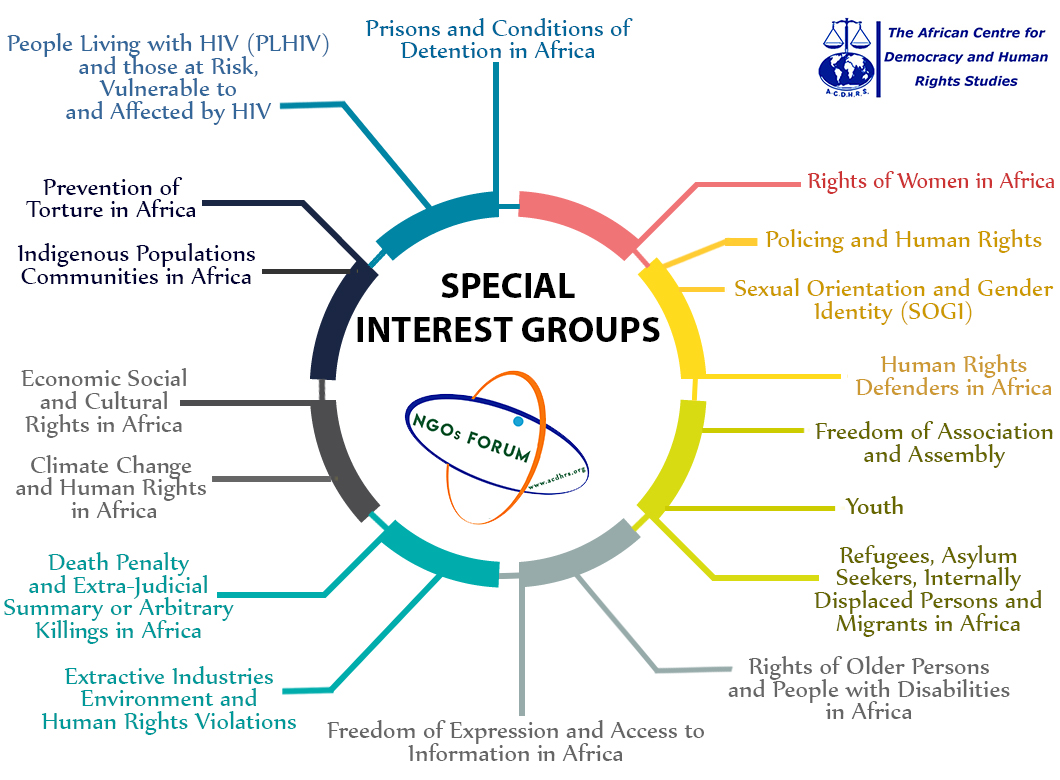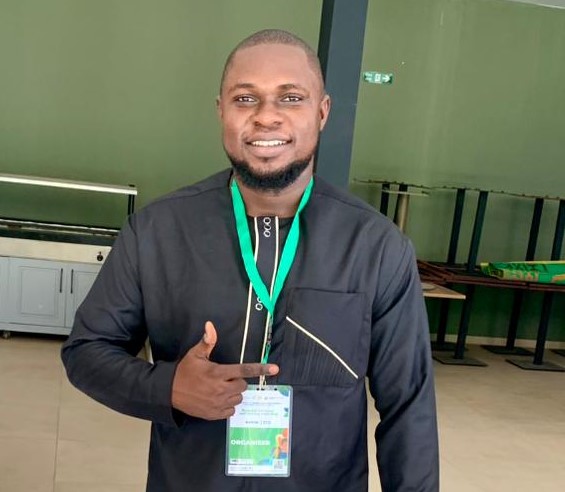
DATES: 28th – 30th April, 2025.
Background and Justification:
The word reparation means making amends or compensating for damages. It was the name given to a movement that started in the 1990s. It grew from the feeling that Africa and people of African descent had a legitimate claim for compensation for the exploitation suffered under slavery and colonialism.The pursuit of reparations for Africans and people of African descendants is intrinsically linked to the historical injustices of the transatlantic slave trade and the enduring legacy of slavery, which continues to manifest in modern forms across the continent. While reparations primarily address historical wrongs, they also acknowledge and seek to rectify the current systemic inequalities and exploitation.
Reparations signify more than financial compensation for Africans and people of African descent. Some Africans view the idea of monetary reparations as insulting, as no amount of money can make up for the wrongs done during the period of slavery. This sentiment reinforces the view of Africans as victims rather than empowered agents of change.
Reparations for Africans and people of African descendants represent a multifaceted approach to acknowledging, addressing, and rectifying the enduring impacts of slavery, colonialism, and systemic exploitation. For many, reparations symbolize justice, healing, and empowerment, with the aim of addressing historical wrongs while fostering sustainable development and equality. They are a formal acknowledgement of the immense suffering inflicted upon their ancestors and a recognition of the long-term consequences of this exploitation.
However, while reparations have traditionally focused on transatlantic slavery and its historical impacts, they must also extend to addressing modern-day human rights violations, such as contemporary forms of slavery that persist across the African continent.
Economic justice forms a key aspect of reparations, addressing the wealth disparities created by centuries of forced labour, land dispossession, and colonial extraction. Reparations also carry a profound cultural significance, symbolizing the restoration of pride, identity, and heritage. Furthermore, reparations present an opportunity for institutional reform, challenging the systemic structures and policies that continue to marginalize African nations and their diasporas.
The NGOs Forum, officially known as the Forum on the Participation of NGOs in the Ordinary Session of the African Commission on Human and Peoples’ Rights (ACHPR), serves as an advocacy platform facilitated by the African Centre for Democracy and Human Rights Studies. Its primary aim is to enhance advocacy, lobbying, and networking among human rights NGOs, as well as between these organizations and other stakeholders, to advance human rights in Africa. Through sharing updates on human rights, democracy, and the rule of law, both domestically and internationally, the Forum enables the African and global NGO community to assess challenges and devise strategies to address them effectively.
The year 2025 has been designated as a pivotal year for addressing historical injustices faced by Africans and people of African descent. The theme, “Justice for Africans and People of African Descent through Reparations”, reflects a growing acknowledgment of the long-lasting impacts of colonialism, slavery, and systematic racism. While historical slavery ended over a century ago, its legacy remains evident in modern-day slavery, which affects millions globally, with Africa bearing a significant burden.
In Africa, Nigeria had the highest number of people living in modern slavery, with an estimated 1.6 million people living in conditions of forced labor and sexual exploitation. Ethiopia and Egypt followed in second and third with around 730,000 and 440,000 people. Eritrea was by far the country in Africa with the highest prevalence of modern slavery in 2021. An estimated 90.3% people per 1,000 inhabitants lived in modern slavery in the East African country. Mauritania followed behind with 32%, struggling with entrenched practices of hereditary slavery. On the other hand, Mauritius had the lowest prevalence at 1.5% per 1,000 population. These figures underscore the urgent need to connect the concept of reparations to contemporary forms of slavery.
The linkage between historical reparations and modern slavery lies in the continuity of exploitation. Modern slavery, though it takes new forms, reflects the same patterns of dehumanization and systemic oppression that defined historical slavery.
The call for reparations is not solely about addressing past atrocities but also about acknowledging and combating their present-day manifestations. Modern slavery in Africa is, in many ways, a continuation of historical patterns of exploitation and oppression. By advocating for reparations, African nations and their diasporas seek to secure resources and recognition necessary to dismantle systemic structures that allow modern slavery to persist. This includes implementing robust legal frameworks, economic support, and educational initiatives to prevent exploitation and support survivors.
Reparations must therefore address both past injustices and their present-day manifestations. This requires integrating modern-day human rights concerns into reparative frameworks, ensuring that resources, policies, and programs target both historical and contemporary exploitation.
To achieve this, reparations must expand in scope. Beyond financial compensation, reparations should include measures that address the root causes of modern slavery, such as poverty, lack of education, and weak legal systems.
Accountability is a crucial element in ensuring the effectiveness of reparations. Governments and corporations that benefit from exploitative practices must be held responsible.
By extending the scope of reparations to include modern-day slavery and human rights violations, the Forum seeks to create a holistic framework for justice that uplifts both past and present victims. This approach ensures that the promise of reparations is not limited to rectifying the atrocities of the past but also paves the way for a future where dignity, freedom, and equality are universally upheld.
OBJECTIVE & THEMATIC FOCUS
OBJECTIVE
• Enhance understanding of the need for reparations among NGOs, policy makers, and the public.
• Create a platform for dialogue among stakeholders, including civil society organizations, researchers, and policy makers.
• Collaborate to formulate actionable strategies for advocating reparations at local, national, and international levels.
• Share case studies and models of successful reparations initiatives from around the world.
THEMATIC FOCUS: Consequently, the Forum will also deliberate on the following sub-themes;
1. I. Economic Reparations for Sustainable Development
This theme examines how reparations can address systemic poverty and wealth inequalities rooted in slavery and colonial exploitation. Discussions will focus on resource allocation, financial compensation mechanisms, and utilizing reparations to support education, healthcare, and infrastructure development in affected communities.
2. II. Addressing Modern-Day Slavery and Exploitation
This focus explores strategies to dismantle contemporary systems of exploitation by strengthening legal frameworks, providing support for survivors, and addressing the socio-economic conditions that enable slavery to persist.
3. III. Gender Justice in Reparations
Women and girls often face unique and compounded harms in both historical and modern contexts of slavery. This focus highlights the importance of gender-sensitive approaches in reparations, addressing issues like sexual exploitation, forced marriages, and access to reparative resources for women.
4. IV. Corporate Accountability and Ethical Practices
This theme explores the role of multinational corporations in perpetuating exploitation through forced labour and resource extraction. Discussions will center on holding corporations accountable, implementing fair labour standards, and integrating corporate reparative contributions into justice frameworks.
5. V. Global Advocacy and Solidarity for Reparative Justice
Building global alliances is essential to advance the reparations agenda. This focus addresses strategies for collaboration between African nations, the diaspora, and international organizations to push for reparative justice in international forums, while ensuring shared responsibility and global solidarity.
6. VI. Global Crime Networks and Reparative Justice
This theme examines crime on a global scale while highlighting how transnational organized crime and criminal networks exploit Africa’s weak state governance systems, thereby undermining effective state-building efforts. Additionally, the issue of reparative justice for victims—particularly within the African context affected by international crime—remains largely unaddressed. This theme will guide discussions on the challenges of combating global crime networks and explore potential strategies and initiatives designed to tackle this pressing issue.
7. VII. Governance and Policy Frameworks
Exploring practical strategies for African governments to institutionalize reparative actions and embed human rights-based approaches into their policies is essential for fostering accountability and sustainable development. By integrating these frameworks, governments can take decisive action to enhance governance, uphold justice, and implement meaningful reparations that redress historical injustices while promoting long-term social cohesion and equity.
PROPOSED TOPICS AND PANEL DISCUSSIONS
1. Historical Context, Legal Foundations, and Mental Health Impacts of Reparations
Understanding the historical injustices of colonialism and slavery is fundamental to achieving justice for Africans and people of African descent. These injustices have not only caused socio-economic disparities but also long-lasting psychological impacts, including intergenerational trauma. Grounding reparations in legal frameworks while addressing mental health consequences is essential for holistic justice and healing. This panel will explore the historical, legal, and psychological dimensions of reparations, emphasizing the need for restorative justice that acknowledges past wrongs and promotes healing.
Focus:
• Historical overview of colonialism, slavery, and their lasting socio-economic and psychological impacts.
• Legal foundations for reparations under international human rights and transitional justice mechanisms.
• Psychological effects of historical injustices, including intergenerational trauma.
• Culturally appropriate mental health interventions and reconciliation processes.
• Integrating historical recognition, legal accountability, and mental health in reparative justice frameworks.
2. Combating Modern-Day Slavery and Exploitation
This panel will address forced labour, human trafficking, and systemic exploitation across the continent. Discussions will include strengthening anti-trafficking laws, providing survivor support, and combating poverty and inequality as root causes.
Focus:
• Analysing the link between historical slavery and modern forms of exploitation.
• Identifying policies and frameworks to dismantle systems enabling modern slavery.
• Emphasizing survivor-centered approaches, including rehabilitation, reintegration, and legal redress.
• Exploring the roles of governments, NGOs, and international bodies in addressing modern slavery through reparations and advocacy.
3. From Land Dispossession to Famine: The Case for Reparations and Justice in Sudan
This discussion addresses critical issues related to conflict, forced displacement, land rights, and famine in Sudan. The Panel is particularly important because it highlights the root causes of Sudan’s humanitarian crisis, rather than just its immediate consequences. By examining historical land dispossession and forced displacement, the panel will provide insights into how Sudan’s marginalized communities and other displaced populations, have been systematically denied their rights. The discussion will also explore how these injustices have led to food insecurity and famine, particularly in the wake of ongoing conflict.
Focus:
Historical land dispossession and displacement of marginalized communities, such as and other displaced groups in Sudan.
• How forced evictions, war, and land expropriation have led to food insecurity and famine.
• The use of hunger as a weapon of war, where displaced communities are denied access to land and humanitarian aid.
• The legal and policy barriers preventing displaced Sudanese from reclaiming land and securing food sovereignty.
• How land restitution, compensation, and economic justice can address Sudan’s famine crisis and long-standing injustices.
• Lessons from other African nations that have implemented land and food justice policies as part of post-conflict reparations.
• The role of the African Union, UN, and international actors in pushing for a reparative justice framework that includes land rights and food security for displaced Sudanese.
4. Crackdown on Civic Space in East Africa: The Suppression of Human Rights Organizations and the Crisis in Cameroon
This panel will address the escalating repression of human rights organizations, activists, and civil society across East Africa, focusing on arbitrary NGO bans, restrictive laws, state-sponsored harassment, and attacks on freedom of expression. While this issue affects several East African nations—including Uganda, Ethiopia, Tanzania, Kenya, etc Cameroon stands out as an urgent crisis, where the government has intensified its crackdown by suspending prominent human rights groups, arresting activists, and violently suppressing dissent.
The Cameroonian crisis will serve as a focal point for understanding the broader trend of shrinking civic space in Africa, exposing the dangers of government repression and the threat it poses to democracy, justice, and human rights advocacy.
Focus:
• Examination of recent actions by Cameroonian authorities, such as the suspension of prominent human rights groups, and their impact on civil society.
• Analysis of tactics used to intimidate or silence activists, including arbitrary arrests and enforced disappearances.
• Discussion on the legal frameworks governing NGOs and the extent to which they align with international human rights standards.
• Sharing of best practices and strategies employed by civil society organizations to navigate and resist oppressive environments.
5. Women and Reparative Justice
Women and girls often face unique and compounded harms in both historical and modern contexts of slavery. This focus highlights the importance of gender-sensitive approaches in reparations, addressing issues like sexual exploitation, forced marriages, and access to reparative resources for women.
Focus:
• Addressing the unique experiences of women and girls in historical and modern contexts of slavery and exploitation.
• Promoting gender-sensitive approaches to reparations, focusing on economic empowerment, education, and healthcare for women.
• Exploring how reparative justice can address gender-based violence, forced marriages, and other systemic harms.
• Showcasing examples of women-led initiatives in advancing reparations and justice.
6. Religious and Traditional Leaders: Partners in Justice and Reparations
This panel will discuss the unique role religious and traditional leaders can play in advocating for reparations, promoting reconciliation, and addressing cultural injustices.
Focus:
• Discussing the unique role religious and traditional leaders can play in advocating for reparations, promoting reconciliation, addressing gender base violence and cultural injustices.
• Exploring how these leaders can mobilize their communities to support reparative justice initiatives.
• Highlighting their role in fostering healing and cultural restitution.
7. The Role of Human Rights Defenders in Advancing Justice
This panel will examine the critical role of human rights defenders in advocating for justice, exposing abuses, and protecting vulnerable groups. It will also address the increasing threats faced by activists across Africa.
Focus:
• Highlighting the critical role of human rights defenders in exposing abuses and advocating for justice.
• Discussing strategies to protect activists from retaliation and violence.
• Linking human rights advocacy to broader reparative justice efforts.
8. Economic Justice and Wealth Redistribution
Economic justice and wealth redistribution are crucial for addressing the historical economic disparities caused by colonialism and slavery, which continue to impact African communities today. This panel will explore reparative strategies such as financial compensation, resource allocation, and sustainable development initiatives to promote social equity and economic empowerment. By linking economic reparations to the goals of Agenda 2063, the discussion will highlight how addressing historical injustices can foster inclusive growth, shared prosperity, and social cohesion across Africa.
Focus:
• Addressing economic disparities caused by colonial exploitation and slavery.
• Models of economic reparations: Financial compensation, resource allocation, and development aid.
• The role of African governments, international institutions, and the private sector.
9. Digital Technology and Human Rights in Africa
This panel will explore the role of digital technology in advancing or undermining human rights. Topics include the potential of technology to empower communities in the reparations dialogue, digital literacy, and the challenges posed by surveillance, misinformation, and cybercrime.
Focus:
• Examining challenges like surveillance, misinformation, and digital authoritarianism.
• Addressing issues of digital inclusion and access to empower marginalized groups.
9.10. Transnational Organized Crimes: A Human Rights Perspective
This panel will address how transnational organized crimes, such as human trafficking, drug smuggling, and illegal resource extraction, undermine human rights and development across Africa. Discussions will also explore reparative mechanisms for victims of these crimes.
Focus:
• Exploring reparative mechanisms for victims of these crimes.• Strengthening cross-border cooperation to combat these crimes effectively.
Status of Human Rights and Democracy in Africa
Special Interest Groups Discussions

Networking for Human Rights in Africa
Languages:
Participants:
VENUE
Expected Outcomes
- Increased Awareness: A more informed dialogue on reparations within civil society and among policymakers .
- Collaborative Framework: Formation of networks and partnerships to advocate for reparative justice.
- Action Plan: A concrete action plan outlining steps for NGOs to take in promoting reparations.
- Documentation: A comprehensive report summarizing discussions, findings, and recommendations from forums.
Visa:
Accommodation:
REGISTRATION
PANEL FEES
Kindly complete the panel request form below no later than Sunday, 13thth April, 2025. Please note that the African Centre is not obliged to receive and process panel requests received after the deadline. Partners are required to contribute the amount US$300.00 (three hundred US Dollars) for all approved requests as their contribution towards the organization of the NGOs Forum.
Please note that for panel requests to be considered by the Steering Committee of the NGOs Forum, all requests must be framed around the theme of the Forum.
Side Event
Kindly complete the Side Event request form below no later than Sunday, 13thth April 2025. Please note that the African Centre is not obliged to receive and process Side Event requests received after the deadline. Partners are required to contribute the amount US$500.00 (Five Hundred US Dollars) for all approved requests as their contribution towards the organization of the NGOs Forum.
Administrative Fees for side events:
However, if the African Centre is informed of the organization of the side event only for its information, then the Partner would not be required to pay the administrative fee.
Please disseminate this information to your networks as widely as possible



